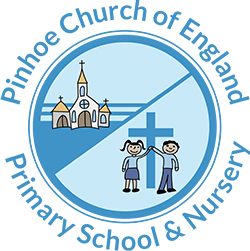MFL
"If you talk to a man in a language he understands, that goes to his head. If you talk to him in his own language, that goes to his heart."
Nelson Mandela
Intent
At Pinhoe C of E Primary School, we want our children to develop a love and appreciation of languages that will stay with them for life. We want language teaching and learning to be enjoyable, inspiring and exciting with many opportunities for children to deepen their understanding of Spanish language and culture specifically, and different languages and cultures generally.
We encourage children’s confidence and strive to stimulate and encourage children’s curiosity about a range of languages, giving particular opportunities to explore those languages that are relevant in our unique school community. Planning includes opportunities for children to develop their awareness of cultural differences in other countries and communities through immersive experiences, an understanding of the British values and curriculum enrichment opportunities.
We strive to embed a solid foundation of speaking and listening skills to enable children to use and apply their learning of languages in a variety of contexts and lay the foundations for future language learning. Our MFL curriculum is designed to progressively develop children skills in languages, through regular lessons throughout Key Stage Two. Children progressively acquire, use and apply a growing bank of vocabulary organised around topics.
Implementation
The teaching and learning of the MFL curriculum at Pinhoe C of E Primary School is planned using the Language Angels scheme of work and resources, which offers a relevant, broad, vibrant and ambitious foreign languages curriculum that aims to inspire and excite our pupils using a wide variety of topics and themes.
The four key language learning skills - listening, speaking, reading and writing - are taught and all necessary grammar is covered in an age-appropriate way across the primary phase. Children progressively acquire, use and apply a growing bank of vocabulary, language skills and grammatical knowledge organised around age-appropriate topics and themes - building blocks of language into more complex, fluent and authentic language.
Additionally, children are exposed to extracurricular activities that focus on the use of Spanish and other languages, and enjoyment of different cultures.
Impact
As well as each subsequent lesson within a unit being progressive, the teaching type organisation of Language Angels units also directs, drives and guarantees progressive learning and challenge. Units increase in level of challenge, stretch and linguistic and grammatical complexity as pupils move from Early Learning units through Intermediate units and into the most challenging Progressive units. Units in each subsequent level of the teaching type categories require more knowledge and application of skills than the previous teaching type. Activities contain progressively more text (both in English and the foreign language being studied) and lessons will have more content as the children become more confident and ambitious with the foreign language they are learning.
Early Learning units will start at basic noun and article level and will teach pupils how to formulate short phrases. By the time pupils reach Progressive units they will be exposed to much longer text and will be encouraged to formulate their own, more personalised responses based on a much wider bank of vocabulary, linguistic structures and grammatical knowledge. They will be able to create longer pieces of spoken and written language and are encouraged to use a variety of conjunctions, adverbs, adjectives, opinions and justifications.
Pupils will continuously build on their previous knowledge as they progress in their foreign language learning journey through the primary phase. Previous language will be recycled, revised, recalled and consolidated whenever possible and appropriate.
Pupils will be aware of their own learning goals and progression as each unit offers a pupil friendly overview so that all pupils can review their own learning at the start and at the end of each unit. They will know and will be able to articulate if they have or have not met their learning objectives and can keep their unit learning intention sheets and unit core vocabulary sheets as a record of what they have learnt from unit to unit and from year to year.
Below is an example outline of the units we will cover throughout KS2:
|
Year 3 |
Year 4 |
Year 5 |
Year 6 |
|
Core Vocabulary * & Phonetics |
Presenting Myself |
Do You Have A Pet? |
Verbs & Grammar |
|
I'm Learning Spanish |
Family |
What Is The Date? |
At School |
|
Animals |
The Tudors or Habitats (Intermediate Version) |
The Weather |
The Weekend |
|
Musical Instruments |
At The Café |
Clothes |
World War II or Habitats (Progressive Version) |
|
Little Red Riding Hood or Ancient Britain |
The Classroom |
The Romans |
Healthy Lifestyles |
|
I Can… |
Goldilocks |
The Olympics or Habitats (Progressive Version) |
The Planets |

 Cedar Tree
Federation
Cedar Tree
Federation